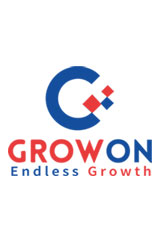The Importance of Marketing for Your Business Growth and Success
The Importance of Marketing for Your Business Growth and Success In today’s business world, success is often determined by eff ective marketing. It is a vital tool in creating brand awareness, attracting customers, and driving sales. In this article, we will explore why marketing is essential for your business and how it can help you thrive and succeed.
Marketing is crucial in creating and increasing brand awareness. By implementing various marketing campaigns across diff erent channels, businesses can reach a wider audience and make their brand known. Increased brand visibility enhances your company’s chances of being recognized, remembered, and chosen by potential customers.
Eff ective marketing enables businesses to identify and target their ideal customer segments. Through market research, data analysis, and buyer persona development, businesses can gain valuable insights into their target audience’s demographics, preferences, and behaviors. This knowledge allows businesses to tailor their marketing eff orts to reach the right people with the right message at the right time, increasing the likelihood of converting leads into customers.
Marketing facilitates meaningful customer engagement, which is crucial for building long-term relationships and fostering loyalty. By implementing customer-centric marketing strategies, businesses can create a two-way communication channel with their audience. Engaging with customers and addressing their needs and concerns helps build trust, loyalty, and advocacy for your brand.
Marketing directly impacts sales and revenue generation. By eff ectively promoting your products or services, highlighting their unique value propositions, and showcasing their benefi ts, businesses can attract potential customers and encourage them to make a purchase. Strategic marketing eff orts, such as running targeted advertising campaigns, optimizing conversion funnels, and leveraging persuasive content, can signifi cantly contribute to driving sales and revenue growth.
In a competitive marketplace, marketing is crucial for setting your business apart from competitors. Through diff erentiation strategies, unique selling propositions, and eff ective branding, marketing helps position your business as the preferred choice among alternatives. It enables you to showcase your competitive advantages, demonstrate why your off erings are superior, and create a distinct brand identity that resonates with your target audience.
1.Building Brand Awareness:
Marketing is crucial in creating and increasing brand awareness. By implementing various marketing campaigns across diff erent channels, businesses can reach a wider audience and make their brand known. Increased brand visibility enhances your company’s chances of being recognized, remembered, and chosen by potential customers.
1.Targeting the Right Audience:
Eff ective marketing enables businesses to identify and target their ideal customer segments. Through market research, data analysis, and buyer persona development, businesses can gain valuable insights into their target audience’s demographics, preferences, and behaviors. This knowledge allows businesses to tailor their marketing eff orts to reach the right people with the right message at the right time, increasing the likelihood of converting leads into customers.
1.Enhancing Customer Engagement and Loyalty:
Marketing facilitates meaningful customer engagement, which is crucial for building long-term relationships and fostering loyalty. By implementing customer-centric marketing strategies, businesses can create a two-way communication channel with their audience. Engaging with customers and addressing their needs and concerns helps build trust, loyalty, and advocacy for your brand.
1.Increasing Sales and Revenue:Marketing directly impacts sales and revenue generation. By eff ectively promoting your products or services, highlighting their unique value propositions, and showcasing their benefi ts, businesses can attract potential customers and encourage them to make a purchase. Strategic marketing eff orts, such as running targeted advertising campaigns, optimizing conversion funnels, and leveraging persuasive content, can signifi cantly contribute to driving sales and revenue growth.
1.Staying Ahead of Competitors:
In a competitive marketplace, marketing is crucial for setting your business apart from competitors. Through diff erentiation strategies, unique selling propositions, and eff ective branding, marketing helps position your business as the preferred choice among alternatives. It enables you to showcase your competitive advantages, demonstrate why your off erings are superior, and create a distinct brand identity that resonates with your target audience.
1.Adapting to Market Trends and Changes:
Marketing keeps your business agile and responsive to market trends and changes. By monitoring industry shifts, consumer preferences, and emerging technologies, businesses can adjust their marketing strategies and tactics accordingly. This adaptability allows businesses to capitalize on new opportunities, stay relevant, and maintain a competitive edge in a dynamic business environment.
Conclusion:
Marketing is crucial for business growth and success as it drives brand awareness, targets the right audience, enhances customer engagement, boosts sales and revenue, diff erentiates businesses from competitors, and helps them adapt to evolving market trends. Investing in strategic marketing initiatives and leveraging various marketing channels can yield signifi cant returns, ensuring long-term success and profi tability.
Joint Venture
The beginning of a joint alliance that brings together more than 30 years of experience to provide integrated development projects and solutions for the Arab market.
How to Develop Your Business: Strategies for Growth and Success
Every business owner dreams of taking their venture to new heights of success. However, achieving business growth requires careful planning, strategic thinking, and eff ective execution. In this blog, we will explore key strategies and actionable steps that can help you develop your business and propel it towards long-term success.
Defi ne Your Vision and Set Clear Goals:
To develop your business, start by defi ning a clear vision for your company’s future. Outline your goals and objectives, both short-term and long-term. These goals should be specifi c, measurable, attainable, relevant, and time-bound (SMART). Having a well-defi ned vision and goals will provide a roadmap for your business development eff orts.
Know Your Target Market:
Understanding your target market is crucial for business growth. Conduct market research to identify your ideal customers, their needs, preferences, and pain points. This knowledge will enable you to tailor your products or services to meet their demands eff ectively. Regularly analyze market trends and stay updated on industry developments to stay ahead of the competition.
Build a Strong Brand:
A strong brand builds trust, credibility, and customer loyalty. Develop a compelling brand identity that resonates with your target audience.
This includes creating a memorable logo, consistent visual elements, and a unique value proposition.
Implement effective branding strategies across all customer touchpoints, including your website, social media channels,and marketing materials.
Focus on Customer Experience:
Delivering exceptional customer experience is vital for business development. Provide excellent customer service,promptly address customer queries and complaints, and personalize interactions whenever possible. Actively seek customer feedback and leverage it to improve your products,services, and overall customer experience.
Satisfied customers become loyal advocates and can drive substantial growth through positive word-of-mouth.
Develop Strategic Partnerships:
Collaborating with strategic partners can open doors to new opportunities and accelerate business growth.
Identify potential partners who complement your offerings and share similar target markets. Build mutually beneficial relationships through partnerships, joint marketing initiatives, or cobranded ventures. Strategic alliances can expand your reach, enhance your credibility, and generate new leads.Embrace Innovation and Adaptability:
In today’s rapidly evolving business landscape, innovation and adaptability are critical for sustained growth. Encourage a culture of innovation within your organization, fostering creativity and exploring new ideas. Stay agile and adapt to changing market dynamics, technological advancements, and customer preferences. Continually evaluate your business processes and embrace new tools or technologies that can streamline operations and drive efficiency.
Implement eff ective branding strategies across all customer touchpoints, including your website, social media channels, and marketing materials.
Focus on Customer Experience:
Delivering exceptional customer experience is vital for business development. Provide excellent customer service, promptly address customer queries and complaints, and personalize interactions whenever possible. Actively seek customer feedback and leverage it to improve your products, services, and overall customer experience. Satisfi ed customers become loyal advocates and can drive substantial growth through positive word-of-mouth.
Develop Strategic Partnerships:
Collaborating with strategic partners can open doors to new opportunities and accelerate business growth. Identify potential partners who complement your off erings and share similar target markets. Build mutually benefi cial relationships through partnerships, joint marketing initiatives, or co-branded ventures. Strategic alliances can expand your reach, enhance your credibility, and generate new leads.
Embrace Innovation and Adaptability:
In today’s rapidly evolving business landscape, innovation and adaptability are critical for sustained growth. Encourage a culture of innovation within your organization, fostering creativity and exploring new ideas. Stay agile and adapt to changing market dynamics, technological advancements, and customer preferences. Continually evaluate your business processes and embrace new tools or technologies that can streamline operations and drive effi ciency.
Invest in Professional Development:
Investing in your own professional development and that of your team is essential for business growth. Stay updated with industry trends, attend relevant conferences and workshops, and leverage online learning resources. Encourage your employees to enhance their skills through training programs and provide opportunities for career advancement.
A knowledgeable and skilled workforce will contribute signifi cantly to your business’s development.
Conclusion:
Developing your business requires a strategic and proactive approach. By setting clear goals, understanding your market, building a strong brand, focusing on customer experience, forging strategic partnerships, embracing innovation, and investing in professional development, you can position your business for long-term success. Remember, business development is an ongoing process, so regularly evaluate your strategies, adapt to changes, and seize new opportunities to drive continuous growth.
Remember to customize and expand upon the blog to provide more detailed information and practical tips based on your specifi c industry and target audience.
The Importance of Good Content for Your Business: Driving Success Through Compelling Messaging
Introduction:
In today’s digital age, where information is readily accessible, businesses face stiff competition to capture the attention and engage with their target audience. Amidst this crowded marketplace, the signifi cance of good content cannot be overstated. Eff ective content serves as a powerful tool to attract, educate, and convert customers. In this article, we will explore the importance of good content for your business and how it can contribute to your overall success.
1.Building Brand Authority and Credibility:
High-quality content positions your business as an authority in its industry. By consistently delivering valuable and informative content, you establish yourself as a trusted source of knowledge. This builds credibility and fosters trust among your audience, increasing the likelihood of them choosing your products or services over competitors. Good content helps you showcase your expertise, diff erentiate yourself from the competition, and build a loyal customer base.
2.Engaging and Connecting with Your Target Audience:
Good content is the key to eff ectively engaging and connecting with your target audience. By creating content that resonates with their needs, challenges, and interests, you can capture their attention and establish a meaningful connection. Engaging content encourages interaction, such as comments, likes, and shares, which expands your reach and exposes your brand to a wider audience. Through well-crafted content, you can foster a sense of community and encourage ongoing customer engagement.
3.Driving Website Traffi c and Enhancing SEO:
Quality content plays a crucial role in driving organic traffi c to your website. Search engines value fresh, relevant, and valuable content, and rank websites accordingly. By incorporating targeted keywords, optimizing meta tags, and publishing informative blog posts, articles, and landing pages, you can improve your website’s visibility in search engine results. Increased visibility leads to higher website traffi c, improved search engine rankings, and greater brand exposure.
4.Supporting the Buyer’s Journey:
Good content supports consumers throughout their buying journey. From initial awareness to the fi nal purchase decision, valuable content helps educate and guide potential customers. By providing informative blog posts, e-books, case studies, and product descriptions, you can address their questions and concerns, alleviate doubts, and provide the information they need to make informed buying decisions. Well-crafted content can act as a persuasive force, converting leads into loyal customers.
5.Amplifying Social Media Presence:
Compelling content is essential for building and amplifying your social media presence. Engaging articles, infographics, videos, and other forms of content are highly shareable, increasing your brand’s visibility across social media platforms. When your content resonates with your audience, they are more likely to share it with their networks, leading to increased brand exposure, website traffi c, and potential conversions. Leveraging good content on social media can signifi cantly enhance your online presence and brand awareness.
6.Establishing Long-term Customer Relationships:
Good content is not just about acquiring new customers; it also plays a vital role in nurturing and retaining existing customers. By consistently delivering valuable content that addresses their evolving needs, you can build strong, long-term relationships with your customers. This increases customer loyalty, encourages repeat purchases, and generates positive word-of-mouth referrals.
Conclusion:
Good content serves as a cornerstone for your business’s success in the digital landscape. It builds brand authority, engages your target audience, drives website traffi c, supports the buyer’s journey, amplifi es your social media presence, and fosters long-term customer relationships. By investing in high-quality content creation, you can diff erentiate your business, establish a competitive edge, and ultimately achieve your marketing and business goals. Remember, good content is a continuous eff ort, so consistently refi ne and adapt your content strategy to meet the changing needs of your audience and industry.
Why Your Company Should Be Product-Driven to Succeed: The Power of Prioritizing Innovation and Customer Value
Introduction:
In today’s rapidly evolving business landscape, companies that prioritize innovation and customer value are more likely to thrive. Being product-driven means placing the development and enhancement of high-quality products or services at the core of your business strategy. In this article, we will explore why your company should adopt a product-driven approach to succeed in a competitive market.
1.Meeting Customer Needs Eff ectively:
A product-driven approach ensures that your company focuses on understanding and meeting customer needs eff ectively. By placing the customer at the center of your decision-making processes, you gain valuable insights into their pain points, desires, and preferences. This customer-centric mindset allows you to develop products that solve real problems and create meaningful value, resulting in higher customer satisfaction and loyalty.
2.Driving Innovation and Diff erentiation:
A product-driven company is inherently focused on innovation. By continuously seeking ways to improve and diff erentiate your products or services, you stay ahead of the competition. Embracing a culture of innovation encourages your teams to explore new ideas, experiment with novel solutions, and push boundaries. This mindset fosters creativity and positions your company as an industry leader, attracting customers who seek cutting-edge solutions.
3.Enhancing Customer Experience:
A product-driven approach enables you to deliver exceptional customer experiences. By investing in research and development, you can identify opportunities to enhance your product’s features, usability, and overall experience. Regularly gathering customer feedback and incorporating it into product iterations allows you to address pain points and tailor your off erings to better suit their needs. A superior customer experience builds loyalty, generates positive word-of-mouth, and leads to long-term business success.
4.Responding to Market Shifts and Trends:
Companies that are product-driven are more agile and responsive to market shifts and emerging trends. By closely monitoring market dynamics and staying attuned to customer demands, you can adapt your products or services to align with changing preferences and emerging technologies. This proactive approach positions your company to capitalize on new opportunities, stay relevant, and outpace competitors who are slower to adapt.
5.Driving Revenue Growth:
A product-driven strategy contributes to revenue growth by delivering products that customers value and are willing to pay for. By consistently innovating and improving your off erings, you attract new customers and increase customer retention. Moreover, a product-driven approach opens avenues for upselling, cross-selling, and introducing new product lines, further expanding your revenue streams.
6.Fostering Employee Engagement and Alignment:
A product-driven culture fosters employee engagement and alignment with the company’s goals and values. When employees are passionate about the products they develop, they are more motivated to go the extra mile and take ownership of their work. Encouraging cross-functional collaboration, providing opportunities for professional growth, and recognizing and rewarding innovation and excellence further enhance employee satisfaction and retention.
Conclusion:
Adopting a product-driven approach is a powerful strategy for success in today’s competitive business landscape. By prioritizing innovation, customer value, and exceptional experiences, you position your company as a market leader. A product-driven culture fosters agility, responsiveness, and diff erentiation, allowing you to meet customer needs eff ectively, drive revenue growth, and outperform competitors. Embrace a product-driven mindset, invest in research and development, and continuously seek to enhance your off erings to create a sustainable path to success.
Start of Cooperation
It was through the presentation of some development projects within the Egyptian and Saudi markets.
Morrow Creation
Establishment of Morrow Creation company in the Egyptian market in order to develop the businesses and markets.
Arak Foundation
Establishment of Arak Foundation in the Kingdom of Saudi Arabia to develop strategic thinking for business sectors within the Kingdom.







